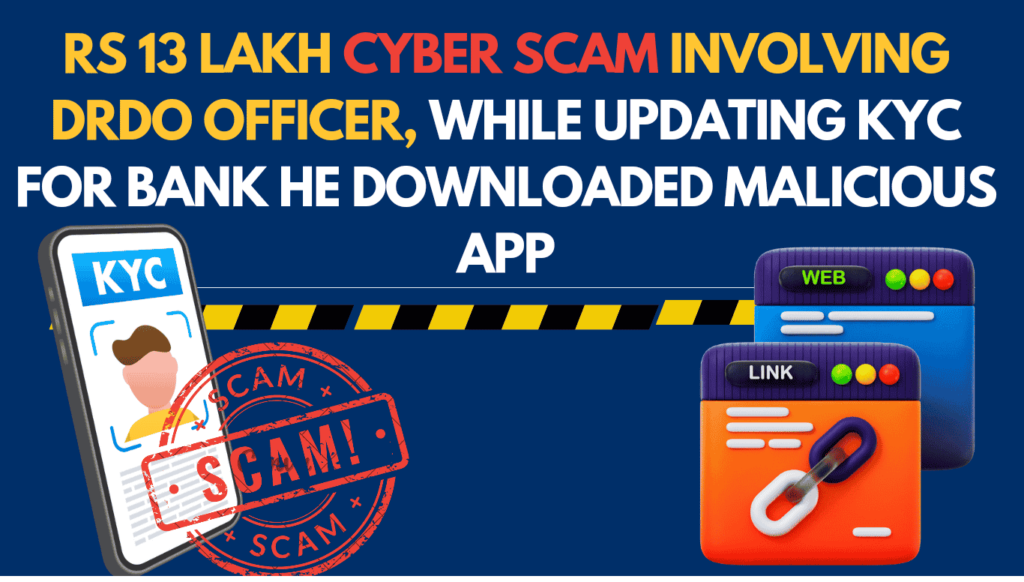Rs 13 Lakh Cyber Scam Involving DRDO Officer, while Updating KYC for Bank

Quick Overview
A senior technical officer at the Defence Research and Development Organisation (DRDO) fell victim to a cyber scam, losing nearly Rs 13 lakh. The incident occurred after he was tricked into downloading a malicious file under the pretense of updating his bank’s Know Your Customer (KYC) details. This case underscores the increasing threat of cyber fraud, particularly targeting individuals through deceptive messages.
Key Points
- Victim Profile: The victim is a 57-year-old senior technical officer at DRDO, based in Pune.
- Nature of the Scam: The scam involved a WhatsApp message from an unknown sender claiming urgent KYC updates were necessary.
- Malware Download: The victim downloaded a file that contained malware, allowing scammers remote access to his device.
- Unauthorized Transactions: After downloading the malware, the victim noticed multiple One-Time Passwords (OTPs) and later discovered unauthorized transactions draining his bank account.
- Police Response: The victim reported the incident to the Pune city cyber police, leading to an investigation and an FIR being filed.
Detailed Breakdown
The Scam
In the third week of November, the DRDO officer received a WhatsApp message that appeared to be from a public sector bank. The message falsely indicated that his KYC details were overdue and warned that his account would be frozen if he did not act immediately. The message included an attachment that the victim was instructed to download.
Malware Impact
Believing the message to be legitimate, the officer downloaded the attached file onto his smartphone. This file contained malware designed to provide the scammers with remote access to his device. Shortly after the download, the victim received several OTPs on his phone, which he ignored since he wasn’t conducting any transactions at that time.
Financial Loss
Exploiting the remote access granted by the malware, the scammers siphoned off Rs 12.95 lakh from the victim’s bank account. It was only when he received notifications of unauthorized transactions that he realized he had been scammed and promptly reported the incident to the police.
Investigation
The police confirmed that this incident is part of a broader trend of cyber fraud, where victims are lured into downloading malicious files. The cybercrime unit has been actively investigating such cases and has issued warnings to the public about the dangers of unknown messages and attachments.
Important Details & Evidence
- Victim’s Action: The victim acted upon a fraudulent message, showcasing how easily individuals can be deceived, even those with technical expertise.
- Scam Tactics: The use of urgency (threat of account freezing) and impersonation (claiming to be from a bank) are common tactics employed by cybercriminals.
- Police Advisory: Authorities have advised the public to be cautious about unsolicited messages, especially those requesting personal information or containing attachments.
Conclusion
This incident serves as a stark reminder of the vulnerabilities individuals face in the digital age. Here are some key safety tips:
- Verify Sources: Always confirm the legitimacy of messages from unknown senders, especially those claiming to be from banks.
- Avoid Clicking Links: Do not click on attachments or links from unknown sources without verification.
- Monitor Transactions: Pay attention to OTPs and account activity, especially if you are not initiating any transactions.
By staying informed and cautious, individuals can better protect themselves from the increasingly sophisticated tactics used by cybercriminals.